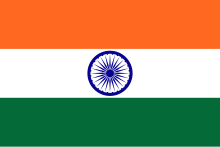1919 in India
1919 in India
The year 1919 was a significant period in Indian history, marked by pivotal political events and social transformations that would shape the struggle for independence. The Jallianwala Bagh massacre on April 13, when British troops fired upon a peaceful gathering in Amritsar, resulted in the deaths of hundreds, galvanizing nationalistic sentiments and protests against colonial rule. In response to growing unrest, the Government of India Act 1919 was enacted, introducing limited self-governance through a system of dyarchy in provinces. The year also witnessed the rise of Mahatma Gandhi's leadership in the Non-Cooperation Movement, as he called for non-violent resistance against British authority. These events catalyzed widespread activism, firmly establishing the Indian independence movement in the global consciousness.
